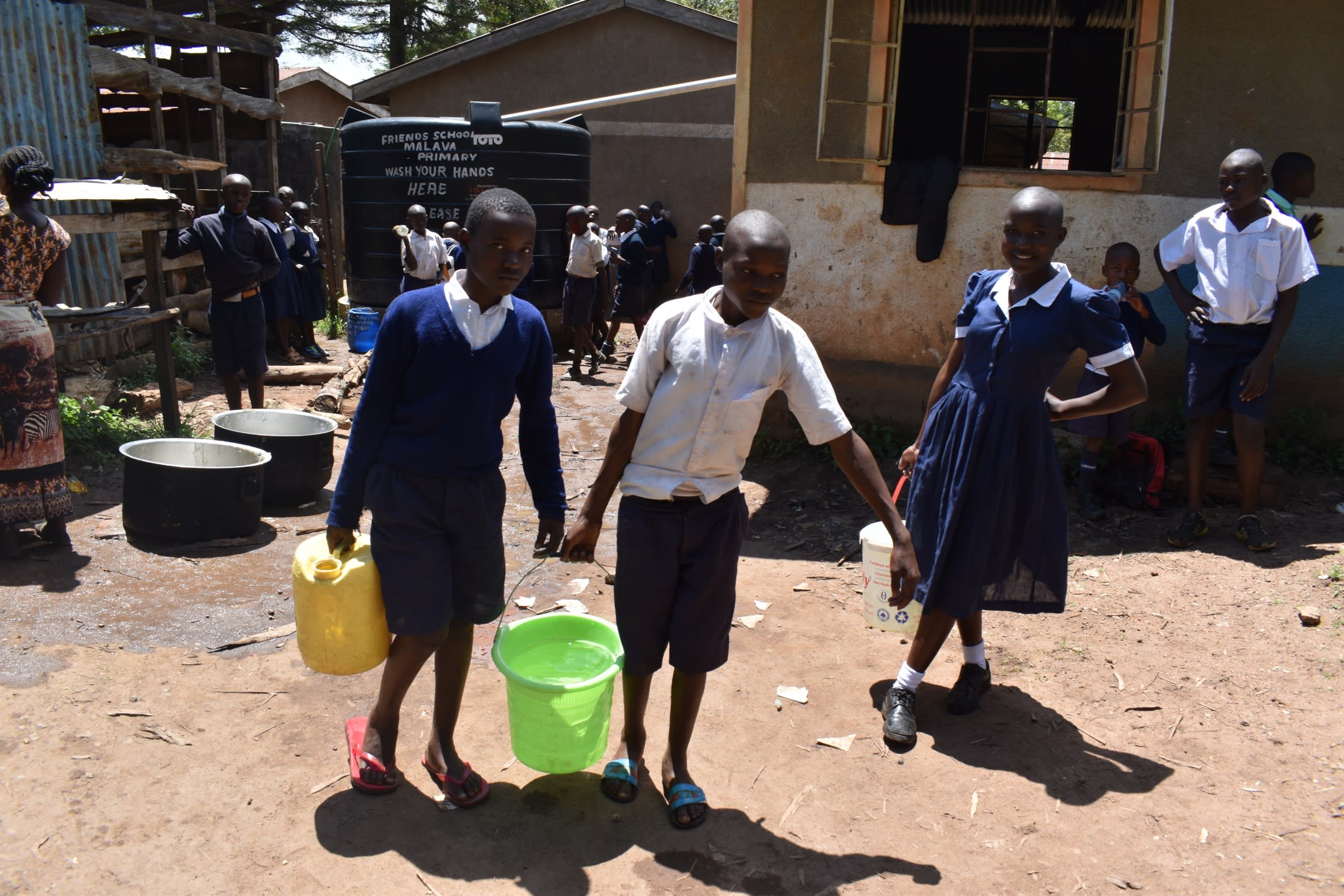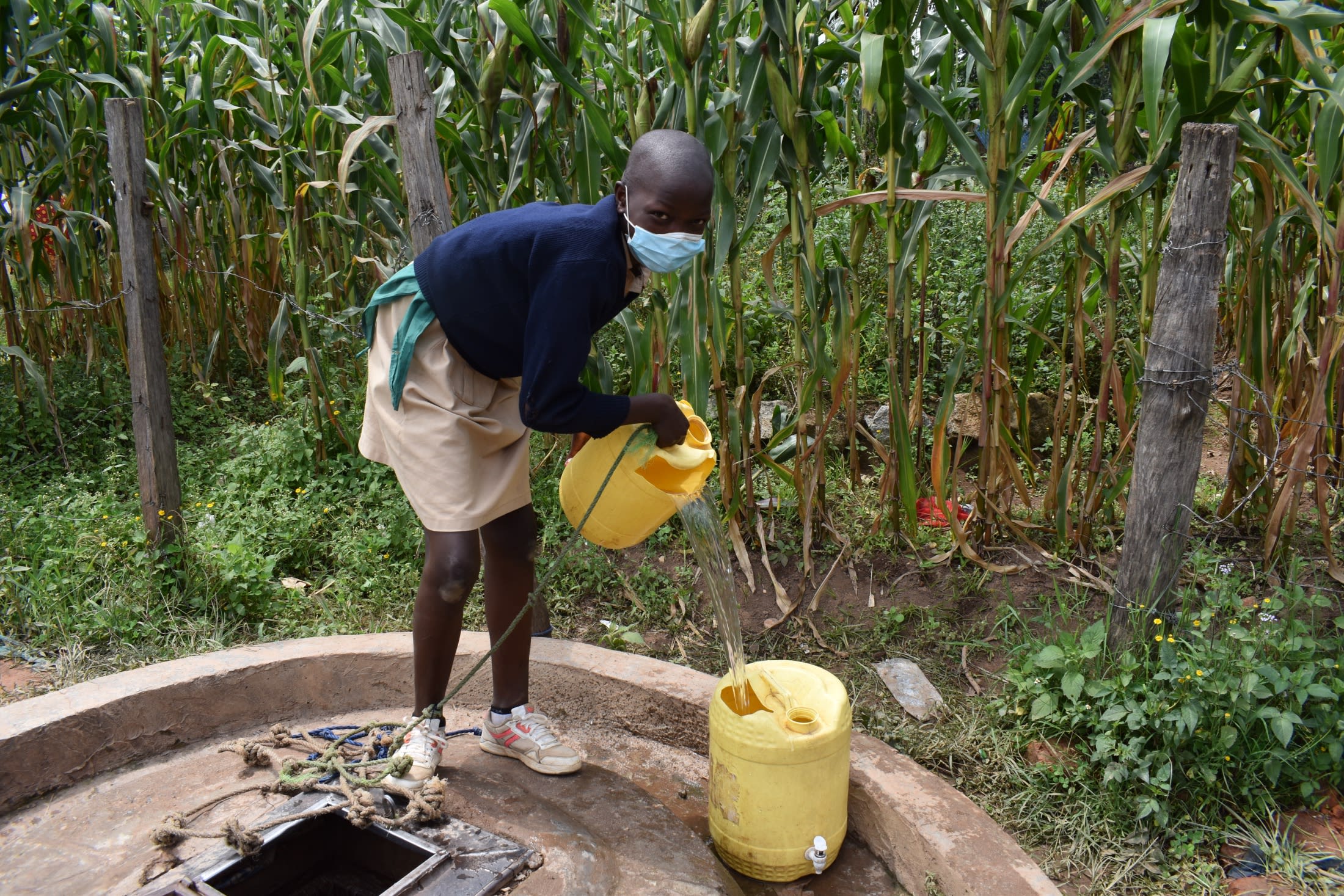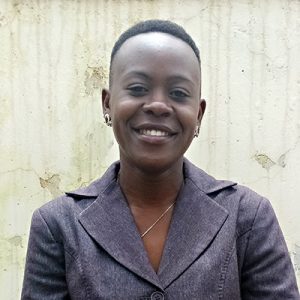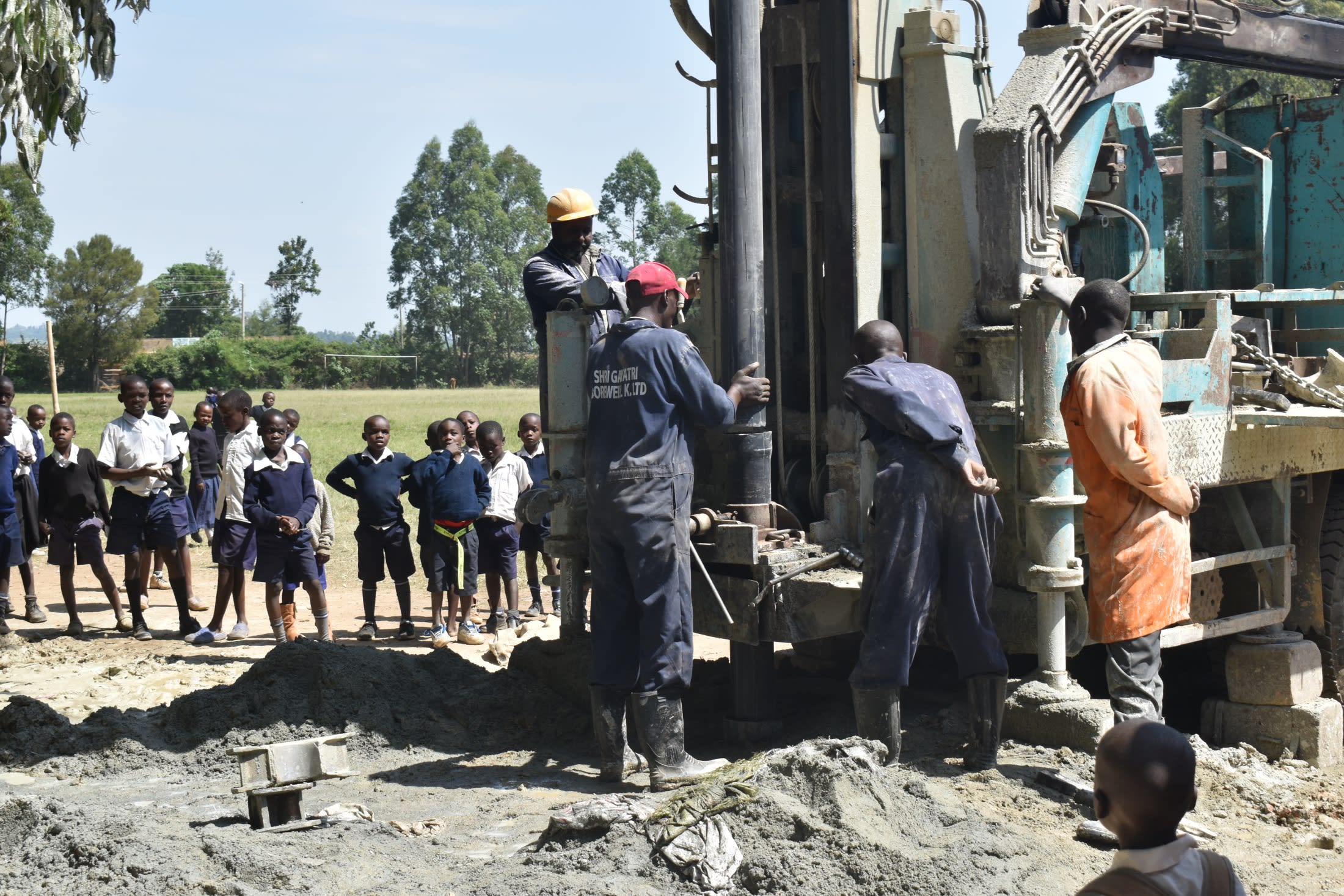The hand-dug well and the rainwater tanks at Malava Primary School do not provide sufficient water for 1,300 students and 27 staff, especially during the dry season when the well and the water tanks run dry.

Crowding at the hand-dug well, which is the school's primary water source, starts early in the morning by the boarding students who try to be first so they have time to prepare themselves before class. Accessing the water is tedious as it involves dropping a container into the well and pulling it up by hand.

Students' impatience with one another has led to fights in the past, which are especially dangerous since it is an open well. Later in the morning, when the other students arrive and the demand increases, the situation worsens, and tensions run even higher.
Linda N., a 12-year-old student at the school, commented, "Things get worse when it's the dry season. We literally fight at the water tanks since the shallow hand-dug well dries up. We never get enough during this period."
Joslet Lishindu, the 32-year-old school bursar (financial manager), also shared her concerns. "My heart skips when pupils crowd at the open hand-dug well. I see the danger that looms at this water point every day."
To make matters worse, the water that students are quarreling over is not safe for consumption. Those drinking the contaminated water have experienced water-related illnesses like typhoid and diarrhea, causing them to miss valuable learning time.
With a new well, students can focus on learning and not spend so much physical and emotional energy fighting with one another or for water every day.
Note: Our proposed water point can only serve 300 people per day. We are working with the community to identify other water solutions that will ensure all 1,327 people have access to safe and reliable drinking water.
What We Can Do:
New Well
We conducted a hydrogeological survey at this school and the results indicated the water table beneath it is an ideal candidate for a borehole well. Due to a borehole well's unique ability to tap into a safe, year-round water column, it will be poised to serve all of the water needs for this school's large population, even through the dry months.
The school will help collect the needed construction materials such as sand, rocks, and water for mixing cement. They will also provide housing and meals for the work team, in addition to providing local laborers. We will complement their materials by providing an expert team of artisans and drilling professionals, tools, hardware, and the hand-pump. Once finished, water from the well will then be used by the school's students and staff for drinking, handwashing, cooking, cleaning, and much more.
Handwashing Stations
There is currently nowhere for students to wash their hands after using the latrines or before eating lunch, let alone the water to do so.
The student health club will oversee the two new handwashing stations we will provide, and make sure they are kept clean and in working condition. The club leaders will fill the handwashing stations with water daily and make sure they are always supplied with a cleaning agent such as soap or ash.
VIP Latrines
We will construct two triple-door latrine blocks using local materials that the school will help gather. Three doors will serve the girls and three doors will serve the boys. All of these new latrines will have cement floors that are designed to be easy to use and to clean. And with a rain tank right on school property, there should be enough water to keep them clean.
Training on Health, Hygiene, COVID-19, and More
We will hold a one-day intensive training session with students, teachers, and parents. This training will cover a wide range of topics including COVID-19 symptoms, transmission routes, and prevention; personal and environmental hygiene; and the operation and maintenance of the rain tank, latrines, and handwashing stations. There will be a special emphasis on handwashing.
Our team of facilitators will use a variety of methods to train, including participatory hygiene and sanitation transformation, and asset-based community development. We will initiate a student health club, which will prepare students to lead other pupils into healthy habits at school and at home. We will also lead lectures, group discussions, and provide illustrative handouts to teach health topics and ways to promote good hygiene practices within the school including handwashing and water treatment. We will then conduct a series of follow-up trainings before transitioning to our regularly scheduled support visits throughout the year.
We and the school strongly believe that all of these components will work together to improve standards at this school, which will help lead to better student academic performance and will help unlock the opportunity for these students to live better, healthier lives.





 Borehole Well and Hand Pump
Borehole Well and Hand Pump
 Rehabilitation Project
Rehabilitation Project































